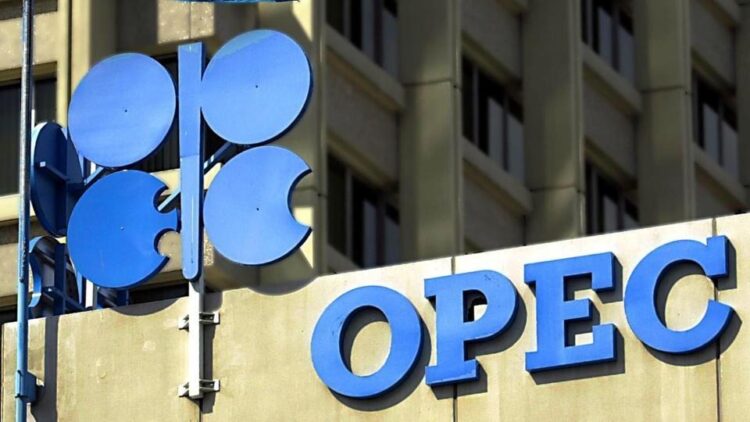
By PETER AGADA May, 02, 2024 Featured
According to a new report, Nigeria's crude oil production declined in April 2024, which has sparked many discussions and criticisms regarding the sustainability of the previous increase seen in January and February this year.
The recent report noted that Nigeria's output volume increased from 1.33 million barrels per day (bpd) in December 2023 to 1.42 million bpd in January, which raised hopes that the country will meet the expectations of fulfilling its OPEC quota.
Production, however, dropped to 1.32 million bpd in February and 1.23 million bpd in March 2024.
A report stated that Reuters and Bloomberg conducted separate surveys based on shipping data and industry sources' information, indicating that Nigeria had experienced a decline, even though the Nigerian Upstream Petroleum Regulatory Commission (NUPRC) and OPEC had not yet officially released April data.
According to the review, Nigeria may have experienced a daily drop in oil production of up to 50,000 barrels during the month or a 1.5 million barrel underproduction for the entire period under review.
In April, OPEC pumped 26.49 million barrels of oil, which is 100,000 barrels less than the revised total for March. Iran and Nigeria experienced the largest output declines.
In order to prevent a surplus, the group and its allies decided to implement supply curbs at the beginning of the year, but they had not yet been completed. According to THISDAYLIVE, Iraq and the United Arab Emirates kept producing thousands of barrels per day more than what was agreed upon.
The most positive increase occurred last month when Libya resumed exports at its largest oil field, which had been stopped earlier in the year by protests. This increased production there by 60,000 barrels per day to 1.19 million barrels per day.
Iraq's production also increased slightly to 4.22 million barrels daily, or roughly 220,000 barrels per day more than the OPEC+ cap.
According to the Bloomberg survey, Iran and Nigeria each reduced supplies by 50,000 barrels per day. The group leader, Saudi Arabia, maintained its production level at roughly nine million barrels per day.
The survey is based on ship-tracking data, information from officials, and estimates from consultants, including Kpler Ltd., Rapidan Energy Group, and Rystad Energy A/S.
In response to economic weakness and increased supply outside the group, several members of OPEC+—including Russia, OPEC, and other allies—made fresh cuts in January. In March, the producers decided to extend the cuts through the end of June.
Saudi production increased slightly, while Congo, Equatorial Guinea, and Gabon saw little output increases.
According to OPEC’s announced schedule, the official Monthly Oil Market Report covering April will be released on May 14, while the one by Nigeria’s upstream regulator is usually released around the same time.
Senator Heineken Lokpobiri, the Minister of State for Petroleum Resources (Oil), acknowledged earlier in April that Nigeria's crude oil production decreased following an initial increase in earlier months.
Lokpobiri promised that steps were being taken to address the situation, to increase production in a sustainable manner and returning it to prior levels.
Lokpobiri responded to recent concerns about the oil production shortfall by stating that the Trans Niger Pipeline (TNP) problems and maintenance work done by some Nigerian oil companies were the main causes of the shortfall.
Tags: OPEC
Share On Facebook Twitter Linkedin Whatsapp Telegram
Categories
Latest Post
- Nigeria Taps Global Markets with $2.25B Eurobond Sale
- Boeing Shares Rise as CEO Confirms China Deliveries to Resume Next Month
- STOCK SPOTLIGHT: UNION HOMES REAL ESTATE INVESTMENT TRUST (UHREIT)
- Nvidia Q1 2025 Earnings Report Summary
- 📉 U.S. Market Summary – May 28, 2025
- CBN Launches New Financial Tools to Boost Nigeria’s Non-Interest Banking Sector! ✨
- Market Watch: Key Updates as Wall Street Awaits Nvidia and Salesforce Earnings
- U.S. Equity Markets Rally as EU Tariff Deadline Is Extended and Consumer Confidence Surges
- Things to Know Before the U.S. Stock Market Opens
- What to Expect in the Markets This Week (May 27–31)

Start investing with Acorns today! Get $5 when you use my invite link: Z24WWE
